TV leaders' debates: No knockout punches but a good night for balance in politics
In some respects the crowded stage stands as a rebuke to both Cameron and Miliband

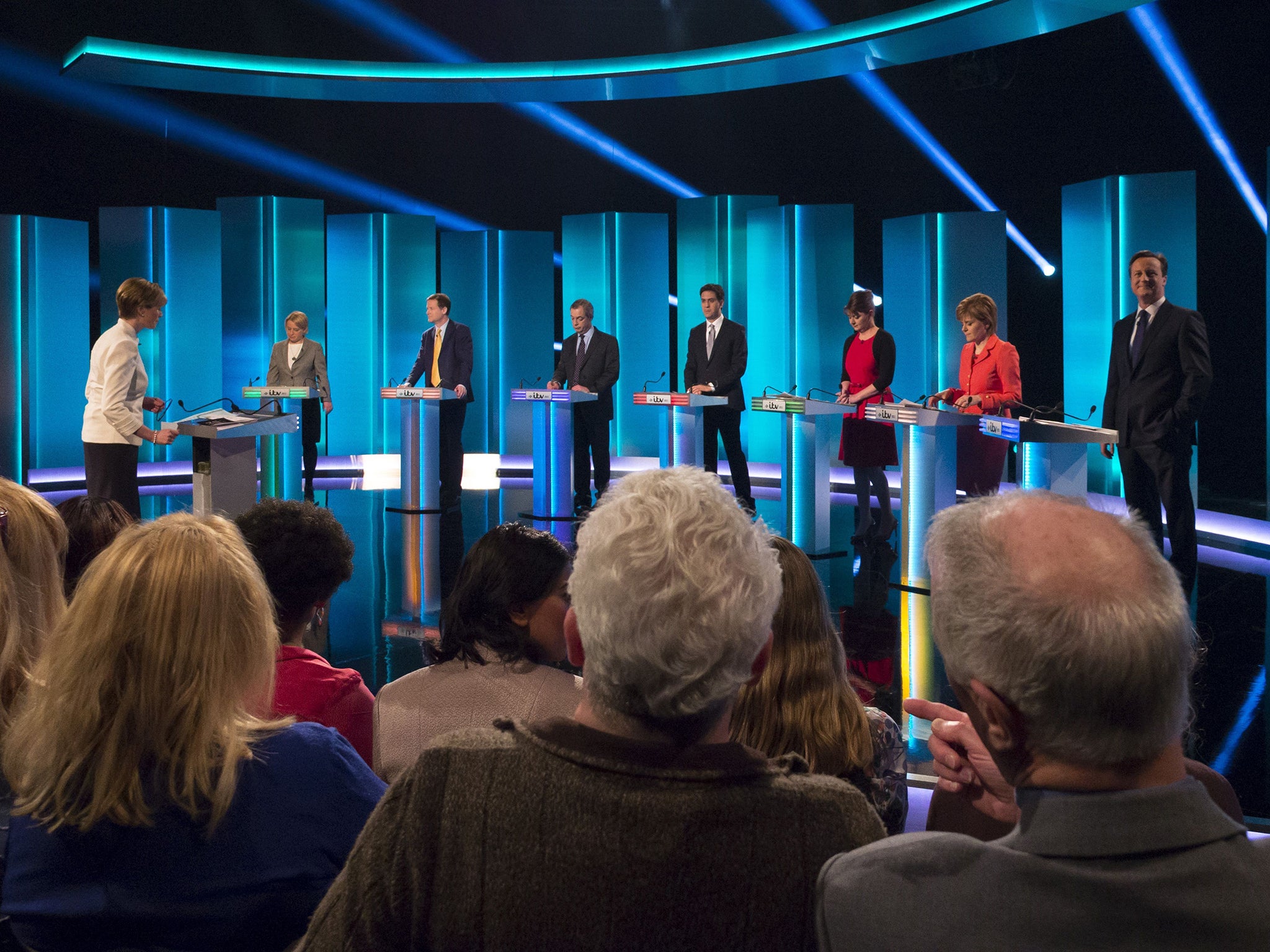
Whatever the instant polls suggest there was no clear winner in the TV debate of seven leaders. There was never going to be a decisive victor. The format gave no space for one individual to flourish. There were moments when a leader appeared fleetingly vulnerable or triumphant, but then the other six leaders made their points and the moments of fragility or triumph passed. Although very well chaired by ITV’s Julie Etchingham, a star for not trying to be the star, there was not a chance for one figure to surface decisively in a way that will prove to be a game changer.
The obvious novelty was the event itself, seven leaders debating live in a nerve- shreddingly close election but even the symbolism was not as potent as it seemed. The UK is not necessarily becoming a democracy of many parties as the debate’s format implied. For sure the SNP soars. UKIP and the Greens may fare well in this campaign. None of these factors will necessary apply in future elections. Even in this one, it was easy to forget, the choice is between one of two Prime Ministers, a Labour or Conservative ruler.
If there are to be live debates in an election it is curious that we will not get one between the potential Prime Ministers while voters did have the chance to watch exchanges between a mixed bunch, some not standing in this UK election and some who might not win their seats let alone form a government next month.
Nonetheless, for all its distortions and constraints there was a winner. There was a victory for a more balanced argument than is normally aired at least in England. Take the deficit, the first topic of the debate. The normal dynamic in this campaign is for interviewers to accept without question the premise that the deficit is the sole economic indicator that matters. On that basis the persistent theme of virtually every interview is about cuts. Like a breath of fresh air most of the leaders in the debate challenged this orthodoxy in one form or another. Persuasive and authoritative, the SNP leader Nicola Sturgeon put the Keynesian case for higher spending, a view shared by at least two other leaders on the platform. Ed Miliband and Nick Clegg also put the case for a more balanced approach. Suddenly David Cameron was isolated, whereas normally his assumptions on the deficit are treated as the norm, even if he is probed regularly about how precisely he would cut spending in the next parliament.
Probably and inevitably all the leaders of the so-called smaller parties will be seen to have performed fairly well. They were the ones in an unusual context. Even the polished Sturgeon, used to the highly charged politics of Scotland, was being viewed in a new situation. Most viewers will have seen the other three putting their arguments, Cameron and Miliband as recently as the week before.
Nonetheless the exchanges between Cameron, Miliband and Clegg were most significant. Clegg began by singling out Cameron for attack, signalling more vividly than ever before distance with his coalition partner. But he took on Miliband at times too. Miliband focused almost exclusively on Cameron, reflecting his frustration at not having a head to head with the Prime Minister. He referred repeatedly to the “people at home”, again reflecting his passionate desire to engage with voters unmediated, but the phrase had served its purpose long before the end. Cameron sought to be above the fray and yet seem engaged, a challenging balancing act. At times he managed to pull it off, but again, given the extremely limited duration for each leader, when he seemed to enthuse it was time to move on.
In some respects the crowded stage stands as a rebuke to both Cameron and Miliband. If one of them had been more commanding over the last five years perhaps they would not have spawned inadvertently so many other parties posing a threat to them. The rise of the smaller parties was partly inevitable. Labour was contaminated by recent power and, unusually, both the Conservatives and Liberal Democrats have ruled for the last five years. But Cameron, Miliband and Clegg, albeit in challenging contexts and in very different ways have given space away for the other parties to thrive.
In spite of their rise to peak-time prominence during the drama, the essence of the choice remains unchanged, a Cameron-led government or an administration with Miliband at the helm. Almost certainly the TV event will not greatly influence the outcome. Perhaps Tory attempts to portray the SNP as a deadly threat will be less potent now more viewers in England have had the chance to assess the impressive and likeable Sturgeon. Possibly viewers will be left with a wider sense that they like variety, voices from outside the so-called Westminster bubble. Not surprisingly the outsiders liked playing up the fact that they were indeed outside the despised political class.
But the debate was largely an event of constrained theatre. The form the political stage will take after 7 May is no clearer.
The Independent has got together with May2015.com to produce a poll of polls that produces the most up-to-date data in as close to real time as possible.
Click the buttons below to explore how the main parties' fortunes have changed:
All data, polls and graphics are courtesy of May2015.com. Click through for daily analysis, in-depth features and all the data you need. (All historical data used is provided by UK Polling Report)

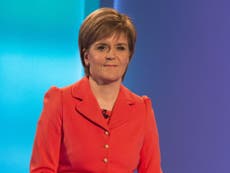
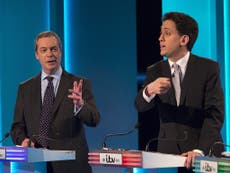
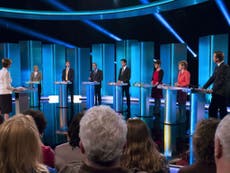
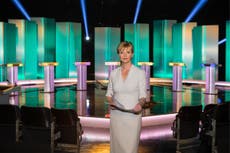
Join our commenting forum
Join thought-provoking conversations, follow other Independent readers and see their replies